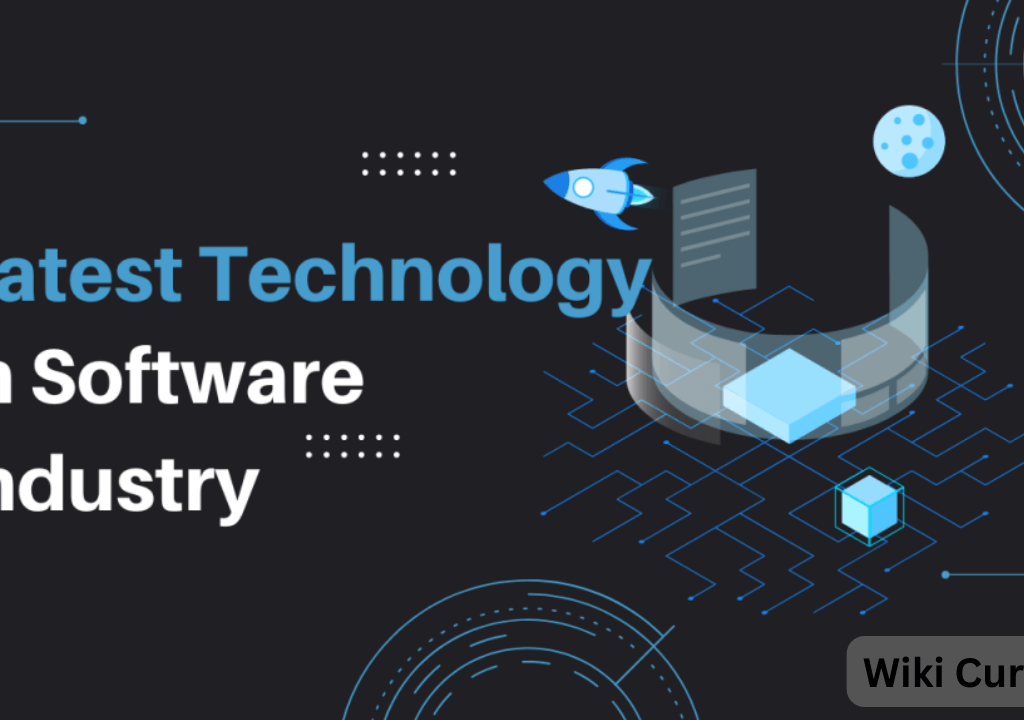The software industry is a relentless force of innovation, constantly churning out new advancements that shape how we interact with the digital world. Staying abreast of the latest technologies in the software industry is crucial for businesses and individuals alike. By understanding these software industry trends, you can leverage their potential to streamline operations, enhance user experiences, and gain a competitive edge.
In this blog post, we’ll delve into some of the most significant latest technologies in the software industry that are transforming the landscape. We’ll explore their applications, potential impact, and how you can prepare to embrace these advancements.
1. Artificial Intelligence (AI) and Machine Learning (ML)
One of the latest technologies in the software industry is the rise of Artificial Intelligence (AI) and Machine Learning (ML). AI encompasses technologies that enable machines to simulate human cognitive functions, while ML allows machines to learn and improve without explicit programming. Venture to Wiki Curiosity, we have every guidance for you! These technologies are revolutionizing software development by enabling the creation of intelligent applications that can:
- Automate Repetitive Tasks: AI-powered software can automate mundane tasks, freeing up human resources for more strategic endeavors.
- Personalize User Experiences: Latest technologies in the software industry based on AI and ML can personalize user experiences by analyzing data and predicting user preferences.
- Make Data-Driven Decisions: AI-powered software can analyze vast amounts of data to identify patterns and trends, helping businesses make informed decisions.
As AI and ML continue to evolve, we can expect even more groundbreaking applications to emerge across various software domains.
2. The Cloud Reigns Supreme
Cloud computing has become an essential aspect of modern software development. It allows companies to store data and access applications over the internet, eliminating the need for on-premise infrastructure. This offers significant advantages in terms of scalability, cost-effectiveness, and accessibility. The latest technologies in the software industry within cloud computing are constantly improving security, performance, and the range of services offered.
By leveraging cloud-based solutions, businesses can achieve greater flexibility and agility. They can scale their resources up or down as needed, and access their data and applications from anywhere with an internet connection. The rise of cloud-native development, where applications are specifically designed for the cloud environment, further underscores the dominance of cloud computing in the software industry.
Read more about Biggest Tech Events: Where Innovation Takes Center Stage
3. The Power of DevOps
DevOps is a software development methodology that emphasizes collaboration between development and operations teams. This fosters a more efficient and streamlined software development process. The latest technologies in the software industry related to DevOps include automation tools for build, testing, and deployment, as well as continuous integration and continuous delivery (CI/CD) practices.
By embracing DevOps, businesses can reduce development cycles, improve software quality, and deliver features to users faster. The latest technologies in the software industry within DevOps are constantly evolving, with a focus on automation, continuous feedback loops, and infrastructure as code (IaC). The latest technology trends in information technology, coupled with IT industry trends, are reshaping the digital landscape, offering innovative solutions to complex challenges.
4. Low-Code/No-Code Development
Latest technologies in the software industry such as low-code/no-code development platforms are democratizing software creation, making it accessible to a wider range of users. These platforms allow users with little to no coding experience to build basic applications using drag-and-drop interfaces and pre-built components.
Low-code/no-code platforms can be a valuable tool for businesses looking to build simple applications quickly and efficiently. They can also empower individuals to create custom solutions without needing extensive programming knowledge. However, these platforms may not be suitable for complex applications that require a high degree of customization.
5. The Rise of Progressive Web Apps (PWAs)
Progressive Web Apps (PWAs) are a type of web application that combines the best features of websites and native mobile apps. PWAs offer an app-like experience, with features such as push notifications and offline functionality, all accessed through a web browser. The latest technologies in the software industry such as PWAs are gaining traction due to their ability to provide a seamless user experience without the need for app store downloads.
PWAs can be a cost-effective way for businesses to reach a wider audience without needing to develop separate web and mobile applications. Additionally, PWAs generally have smaller file sizes compared to native apps, making them faster to load and more accessible to users with limited bandwidth.
6. The Future of Security: Addressing Evolving Threats
Cybersecurity remains a top concern in the software industry. As the latest technologies in the software industry advance, so too do the threats posed by malicious actors. Businesses need to be vigilant in protecting their data and systems from cyberattacks.
Conclusion
The software industry is a dynamic and ever-evolving landscape. By staying abreast of the latest technologies in the software industry, including the latest technology in computer science, businesses and individuals can position themselves for success in this rapidly changing digital world. Embrace the power of these advancements, foster a culture of continuous learning, and be a part of shaping the exciting future of software.
Read more about Future Technology Ideas: Revolutionizing Healthcare and Beyond
